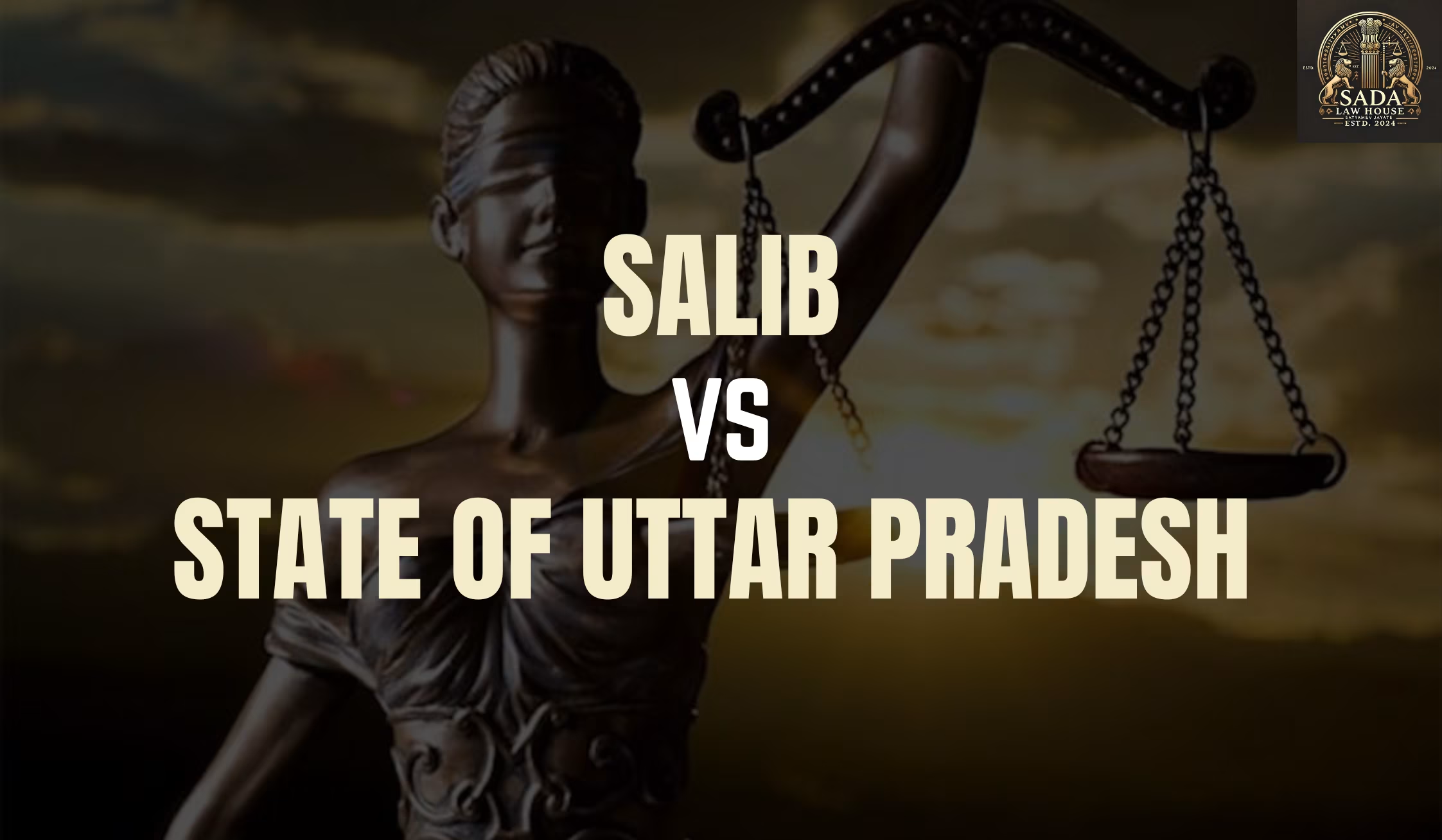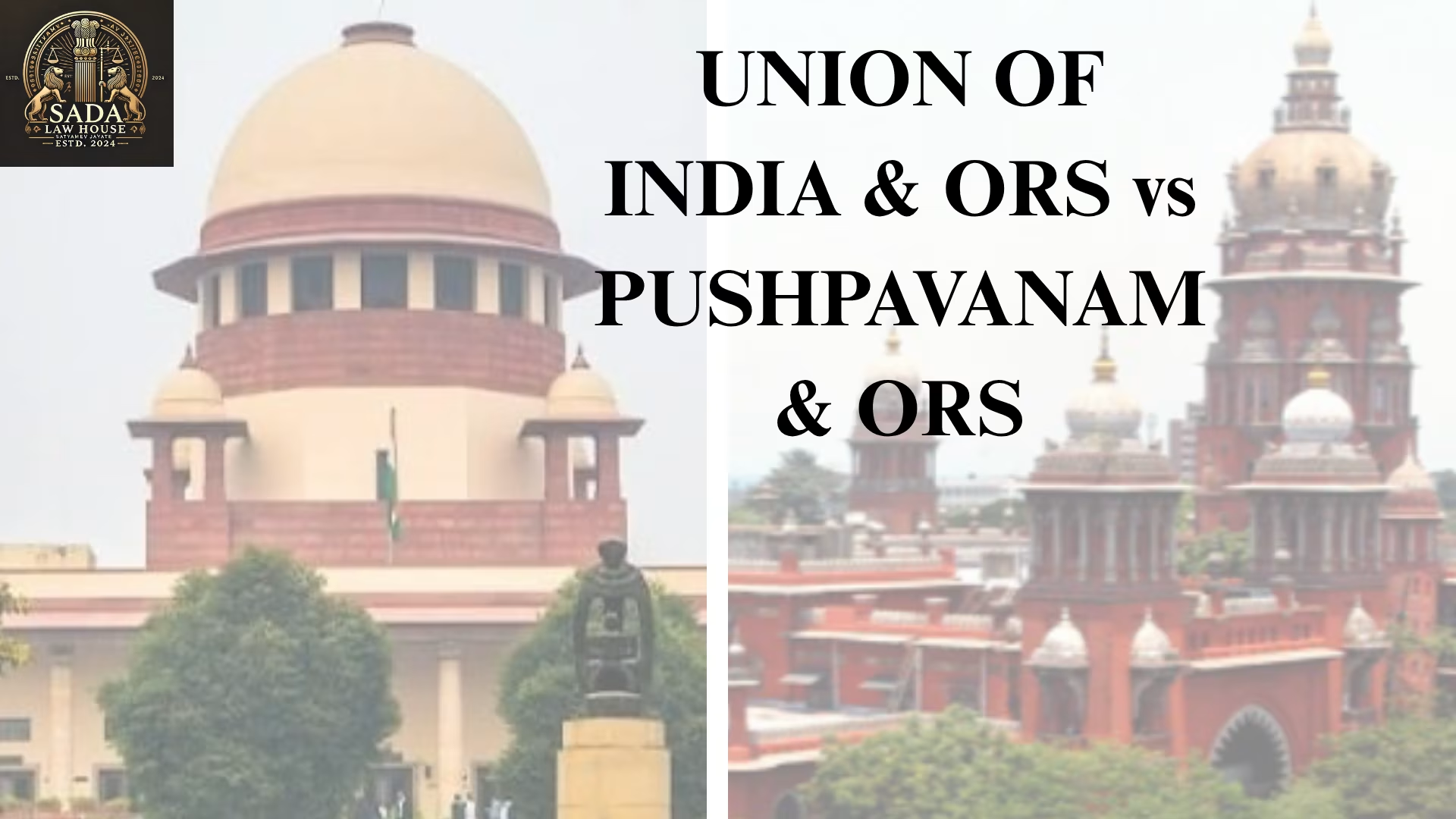Salib v. State of Uttar Pradesh (2023): Supreme Court Denies Plea to Quash Criminal Intimidation FIR
- NISHA KUMARI
- 08 June 2025

In Salib v. State of Uttar Pradesh (2023), the Supreme Court emphasized the need to carefully examine FIRs for misuse of law but refused to quash charges of criminal intimidation related to a serious sexual assault case.
Introduction
In the case of Salib @ Shalu @ Salim v. State of Uttar Pradesh (2023), the Supreme Court addressed an appeal to quash an FIR under Section 506 of the Indian Penal Code, which deals with criminal intimidation.
The complainant, Husna, alleged that she was threatened by the appellant and others to withdraw a previous FIR involving gang rape and assault under Sections 376D, 323, 120B, and 452 IPC. The High Court had refused to quash the FIR, leading the appellant to move the Supreme Court, invoking precedents such as:
State of Haryana v. Bhajan Lal
Neeharika Infrastructure Pvt. Ltd. v. State of Maharashtra
The case raises important concerns about the balance between protecting victim rights and preventing misuse of legal processes.
Facts of the Case
FIR No. 175/2022 was lodged on August 11, 2022, in Mirzapur Police Station, Saharanpur, under Section 506 IPC.
The complainant, Husna, claimed she was being threatened to withdraw her earlier complaint (FIR No. 122/22) involving serious charges like gang rape and criminal conspiracy.
Accused: Khursheed, Farooq, Maharaj (wife of Farooq), and Suleman Kabadi—allegedly acting on behalf of Iqbal @ Balla, a known criminal.
Husna stated she was shown a pistol and warned of grave consequences if she did not drop the rape case.
Issue of the Case
Should the FIR filed under Section 506 IPC be quashed with respect to the appellant?
Judgment
The Supreme Court ruled against quashing the FIR for the following reasons:
The informant never claimed to have paid any money under duress, making Section 386 IPC (extortion) inapplicable.
However, the threats to withdraw a gang rape complaint did constitute a serious offense under Section 506 IPC.
The Court reiterated the Bhajan Lal principles, underlining that FIRs should be quashed only in rare cases where:
The allegations are absurd or inherently improbable.
No offense is disclosed even if the allegations are accepted at face value.
Given the gravity of the original allegations (gang rape), threats to withdraw such a complaint could obstruct justice and silence victims.
Thus, the Court refused to quash the FIR and allowed the investigation to proceed.
Conclusion
The Supreme Court’s decision in Salib v. State of Uttar Pradesh reinforces the principle that while courts must safeguard against false or malicious FIRs, they must also protect victims of serious crimes like sexual assault from being intimidated into silence.
By declining to interfere with the ongoing investigation, the Court upheld:
The integrity of the judicial process
The importance of examining motive and context in FIRs
The need to prevent misuse of Section 482 CrPC as a shield against legitimate prosecution
This judgment serves as a strong precedent against attempts to derail sexual assault investigations through threats and coercion.






